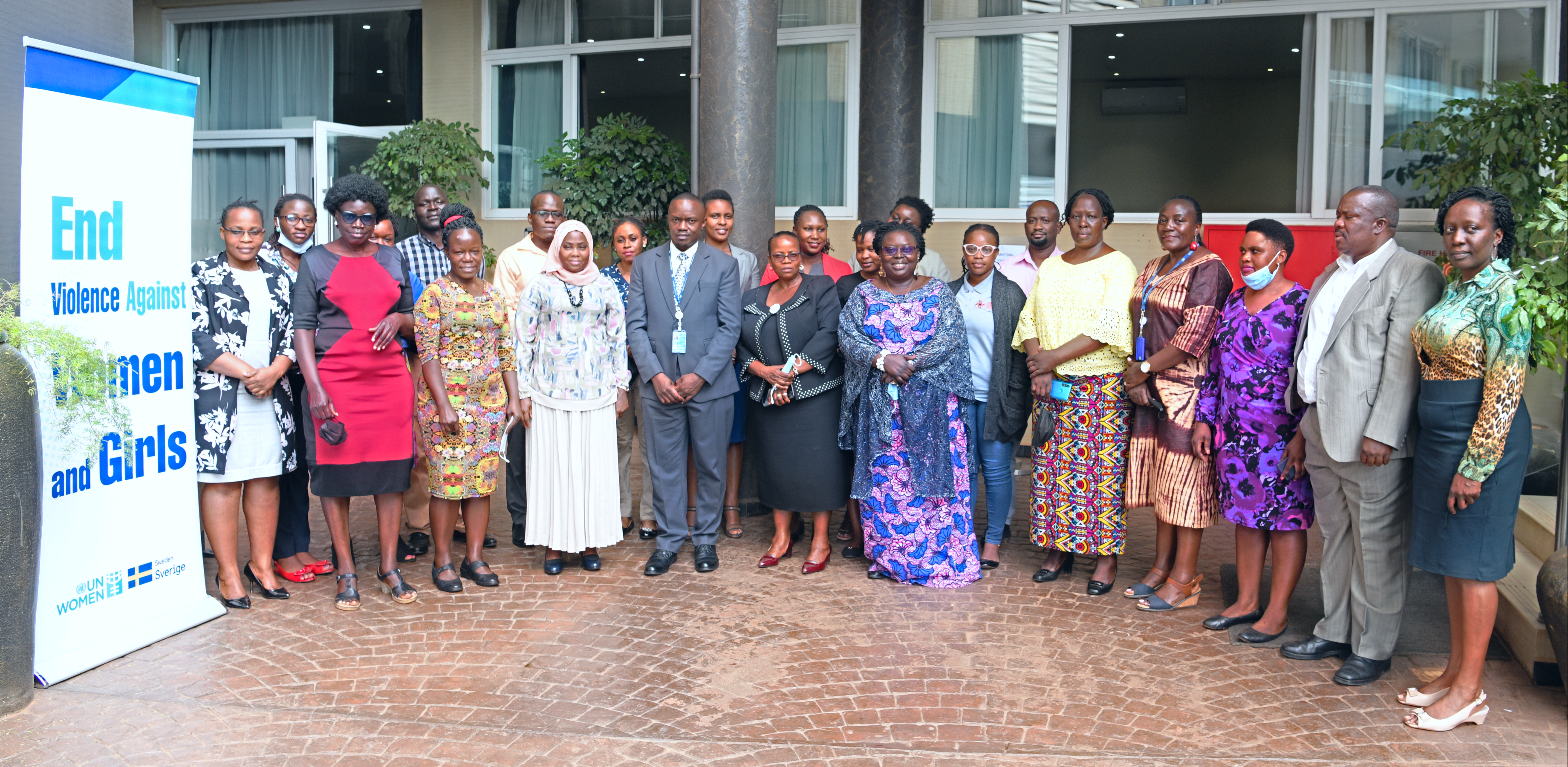Uganda commits to Achieving Gender Equality and the Empowerment of all Women and Girls at the 66th Session of the UN Commission on the Status of Women
Date:

The Ministry of Gender Labour and Social Development (MGLSD) with support from UN Women convened a meeting at Naguru Skyz Hotel in Kampala to debrief government officials, civil society and academia on the commitments made at the 66th Session of the UN Commission on the Status of Women held in March 2022 under the theme, "Achieving Gender Equality and Empowering All Women and Girls in the Context of Climate Change, Environmental, and Disaster Risk Reduction Policies and Programs".
The officials were informed of Uganda’s commitment to empowering women through strengthening normative, legal and policy frameworks to enable inclusiveness in the design and implementation of policies and programmes for resilience against climate change and environmental degradation that have a significant impact on women and children.
Specifically, the government will take actions to fully implement existing commitments and obligations in the context of climate change, environmental, and disaster risk reduction policies and programmes to achieve gender equality and the empowerment of all women and girls, as well as the full and equal enjoyment of their human rights and fundamental freedoms without discrimination of any kind.
Moreover, the government will integrate gender perspectives into the design, funding, implementation, monitoring and evaluation of policies and programmes on climate change mitigation, adaptation and resilience, disaster risk reduction, biodiversity protection, environmental degradation and pollution, including chemicals, pesticides and plastics such as microplastics, as well as into needs assessments, forecasting and early warning systems, and disaster prevention, preparedness, response, relief, rehabilitation and reconstruction plans at the national, regional and international levels, as appropriate.
Furthermore, the participants agreed to foster partnerships and foster collaboration through efforts that are sensitive to the needs and experiences of women and girls bearing in mind their capabilities and giving credit to their potential.
Addressing interlinkages among the social, economic, and environmental dimensions of sustainable development was also highlighted through strengthening institutions and capacities to foster integration at all government and political levels.
The debrief meeting also emphasized the importance of generating and using high-quality, timely and reliable data disaggregated, including by income, gender, age, race, ethnicity, migratory status, disability, geographic location, and other characteristics relevant in national contexts to better understand the impacts of climate change and disasters and help drive gender-responsive policy responses.
On behalf of the Ministry of Gender Labor and Social Development, Ms Nakafeero Angela Commissioner appreciated the team for their participation in the pre and post-CSW events that saw Uganda’s full participation at both regional and global levels.
“Uganda successfully attended the main sessions in New York and the Ministry looked forward to the Actions and way forward to the implementation of the agreed conclusions,” she said.
The UN Women Deputy Country Representative a.i, Mr Dan Bazira, noted that during the sixty-sixth session of the Commission on the Status of Women that took place in March, the member states recognized with concern the disproportionate impacts of climate change, environmental degradation, and disasters on the lives of women and girls.
“There has been the loss of homes, destruction of infrastructure, livelihoods, water scarcity, damage of service points such as schools and health facilities and stressed the urgency of eliminating persistent historical and structural inequalities, discriminatory laws and policies, negative social norms and gender stereotypes that perpetuate multiple and intersecting forms of discrimination,” he said.
Mr Bazira also emphasized that there was a need to expand financing for Gender equality climate-smart actions to accelerate the implementation of SDGs and realize women and girls’ full human rights which are essential to achieving sustained, inclusive, and equitable economic growth and sustainable development.